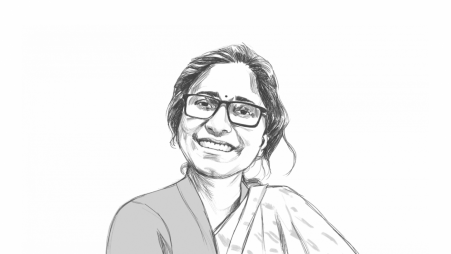From Metal to paper to pixels: The evolution of money
Money has never stopped evolving from bartering to banknotes to bitcoins. The monetary system will continue to evolve as long as humans require a medium of exchange

Theorists and currency specialists say that money and currency are two different concepts. While money is the intangible medium of exchange, currency is the tangible paper banknotes, coins, or plastic cards like credit or debit cards.
History says that when communities were smaller and needs were fewer, the first people exchanged goods for the things they needed; the process was coined as bartering. For example, a shoemaker may exchange a pair of shoes for a farmer's rice sack.
As societies grew more complex and humans needed to trade things in bulk, they required a socially accepted price for materials and an easily exchangeable medium. Hence, a collectively agreed-upon medium of exchange became inevitable.
Historians say that money has been part of human history for at least the past 5,000 years in some form or another.
In early August 2021, Chinese archaeologists from the State University of Zhengzhou uncovered the world's oldest known and securely dated coin minting site at Guanzhuang, Henan Province, China. Around 640 BCE, this facility began producing spade coins, one of the first standardised types of metal coinage.
Meanwhile, in 600 BCE, Lydia's King Alyattes issued what is thought to be the first official currency, the Lydian stater. The coins were made from electrum, a mixture of silver and gold that occurs naturally, and the coins were stamped with pictures that acted as denominations.
In 1260 CE, China's Yuan dynasty switched from coins to paper money. Eventually, banks began to issue paper banknotes to depositors and borrowers instead of metal coins. These notes could be taken to the bank anytime and exchanged for face value in metal coins, typically silver or gold.
The gold standard was created throughout the 1870s. This law authorised currency production depending on a country's gold holdings. The twenty-first century saw the emergence of mobile payments, which relate to money used to purchase products and services.
Mobile payment providers such as Apple Pay and Google Pay compete for shops to accept their platforms for point-of-sale transactions. Venmo and PayPal are two programmes catering to this kind of payment.
But this isn't the end of it. Then emerged virtual currencies, which have no physical existence and are only available in electronic format. Cash is stored and traded using computer apps or specialised software.
Bitcoin swiftly set the norm for virtual currency. It was released in 2009 under the alias Satoshi Nakamoto. As of 12 December 2023, the total value of Bitcoin worldwide was little more than $803.74 billion.
Although Bitcoin remains the most popular and pricey, new virtual currencies like Ethereum, XRP, and Dogecoin have entered the market.
From bartering to banknotes to bitcoins, money has never stopped evolving. The monetary system will continue to evolve as long as humans require a medium of exchange.
Tangka to Taka: The evolution of money in Bangladesh
Tanka or tangka was one of the major historical currencies of Asia, particularly in the Indian subcontinent and Tibet. It was introduced in the 14th century and became a currency of the Silk Road. Its history is intertwined with the mediaeval Islamic history and culture of the Indian subcontinent. Historians say that the word Tangka found its way to taka, which is the currency of Bangladesh. The Bangladeshi taka is the currency of modern Bangladesh.
It was officially introduced in 1972 by the Bangladesh Bank following the end of the Bangladesh Liberation War and is produced by Bangladesh's Security Printing Corporation.
Until 1971, the present-day Pakistani rupee had bilingual inscriptions in Urdu and Bengali and was called both the rupee and taka. The Bengali Language Movement played a decisive role in ensuring the recognition of the taka in East Pakistan. After the independence of Bangladesh in 1971, on 04 March 1972, the official notes or taka of Bangladesh were introduced, replacing the Pakistani rupee. From then on, in the last 50 years, the Bangladesh Bank has printed currency notes in over ten series and in an array of designs.
Currently, Bangladesh has eight currency notes (Tk5, 10, 20, 50, 100, 200, 500, and 1000). Printing of Tk1 and 2 has already stopped, and slowly, the use of these notes that are already in use is being replaced with coins, and the Tk5 note is also on its way into oblivion.



 Keep updated, follow The Business Standard's Google news channel
Keep updated, follow The Business Standard's Google news channel
















